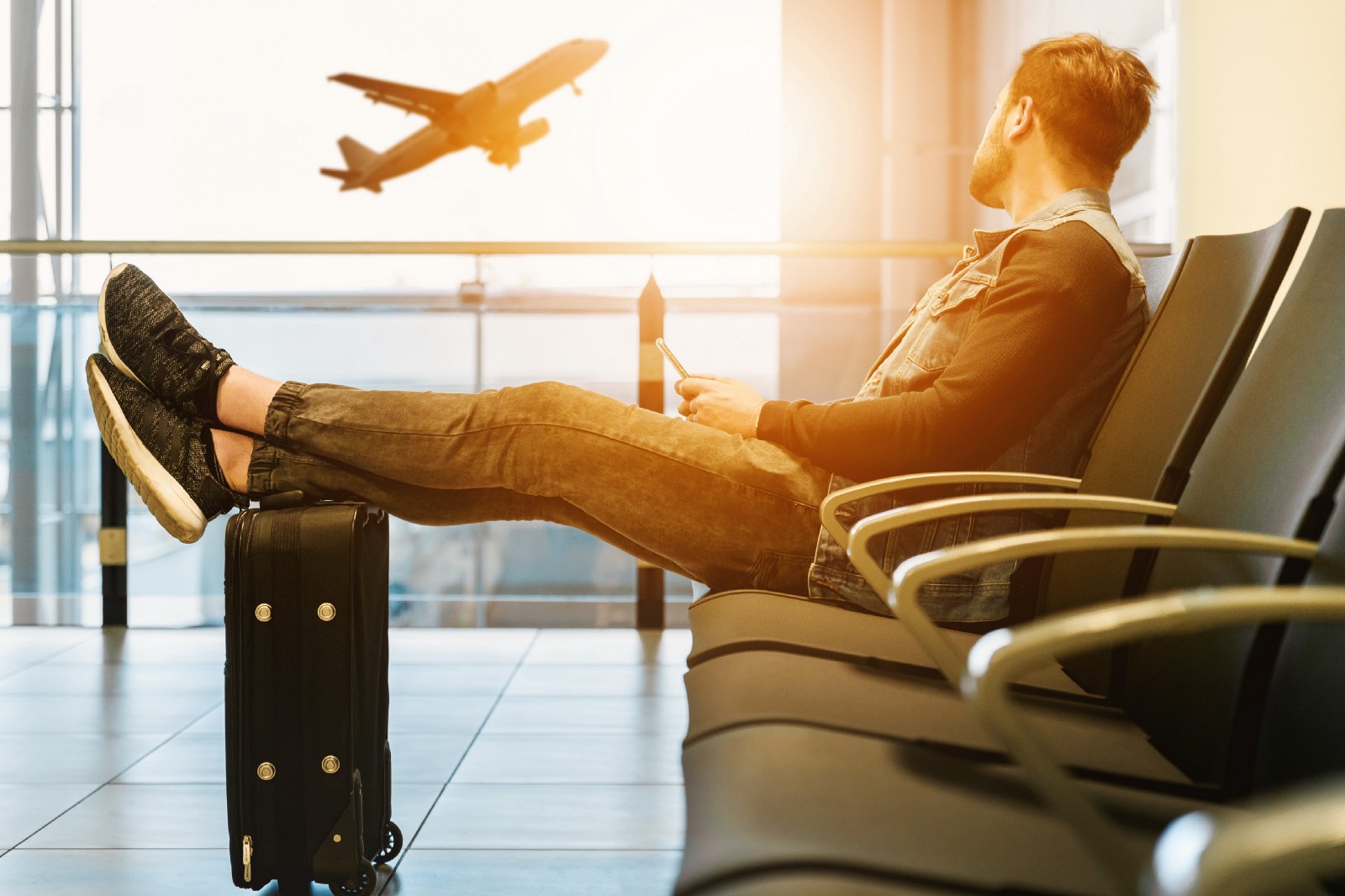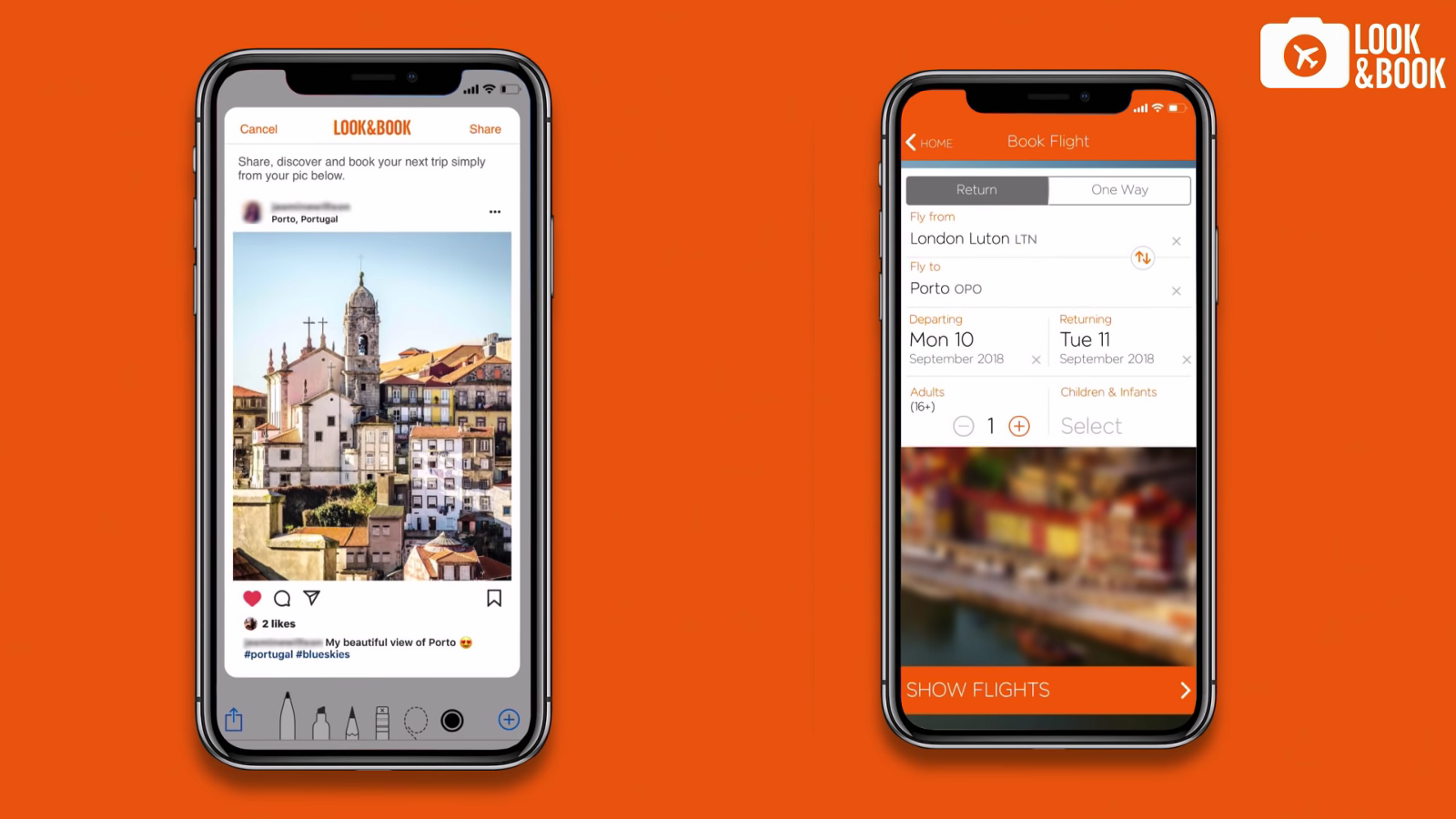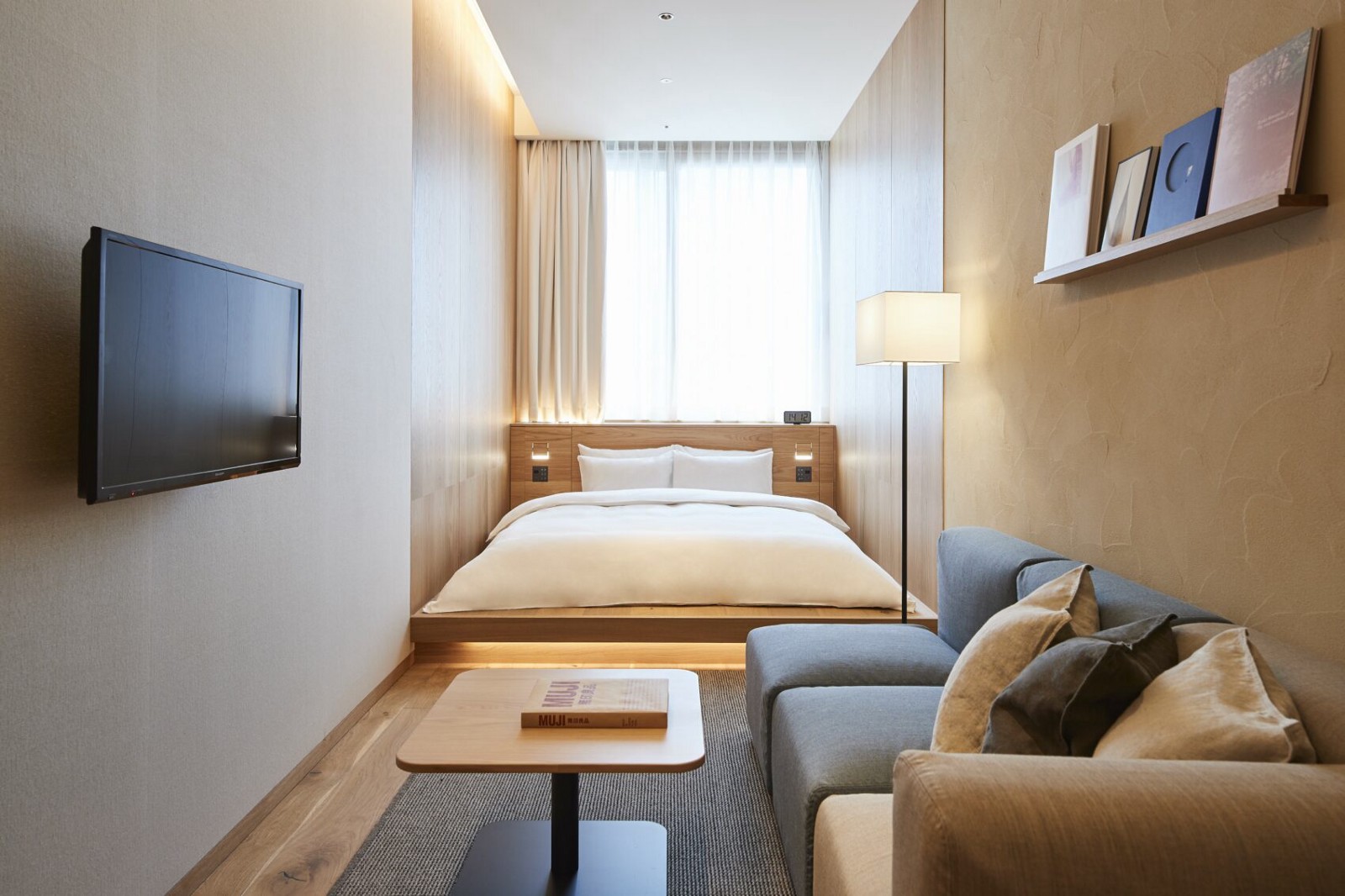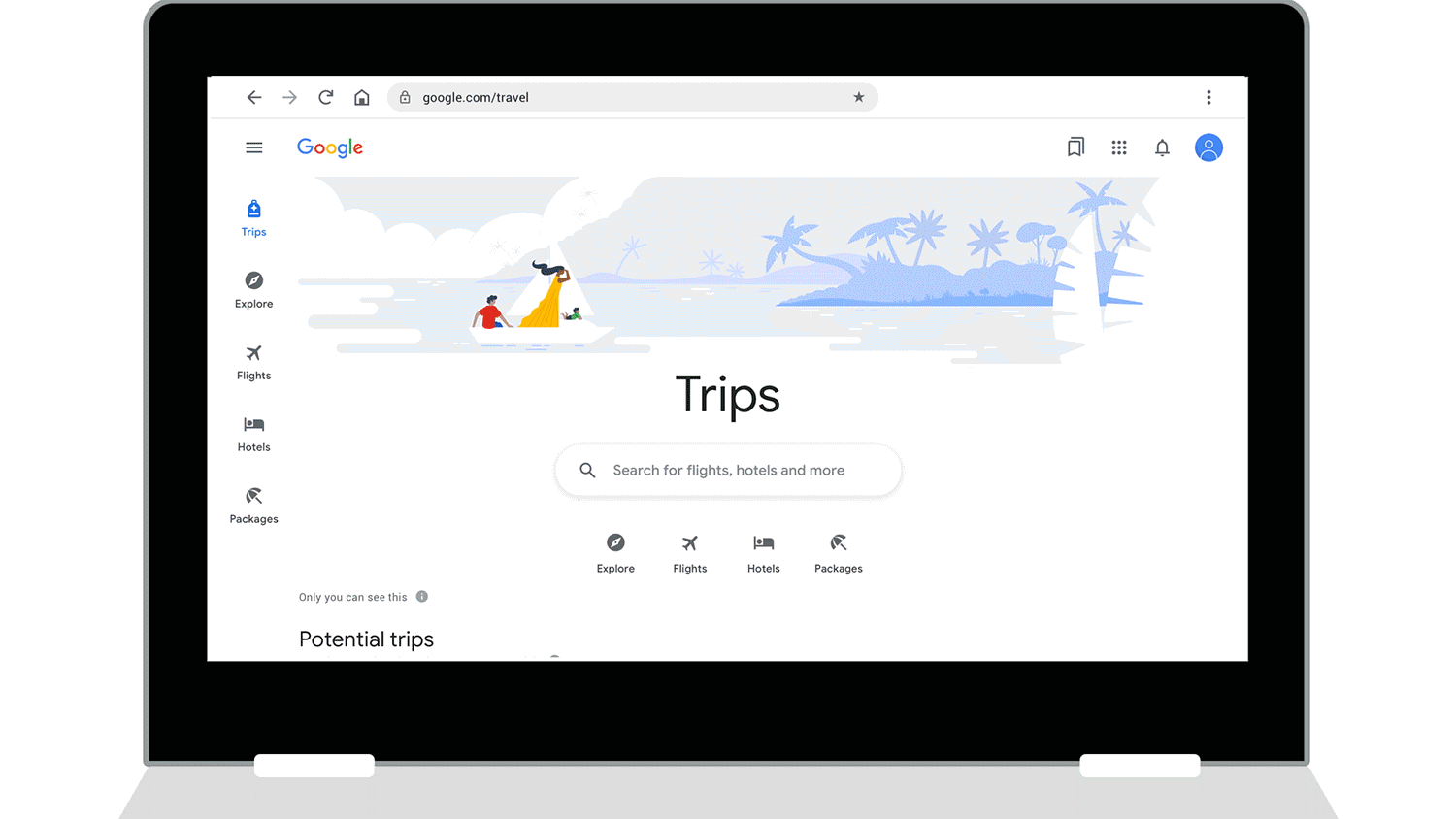Get ready for a hyper-personalized, brand-curated, and data-driven transformation

The State of Travel
Wanderlust is growing globally. According to data from the WTTC, last year travel and tourism grew 3.9%, above global GDP growth of 3.2% and contributing a record $8.8 trillion and 319 million jobs to the world economy. Looking around, there are triggers everywhere. Our friends’ vacation stories on Instagram keep nudging us to plan the next trip out of FOMO; the booming wellness economy keeps telling us that we deserve to take a break; the accelerating pace of globalization increases transcultural exchanges and lends an aspirational sheen of cosmopolitan chic to international travel. Studies have found millennials favor experiences over possessions, and travel represents the ultimate odyssey of self-discovery for many.
Fortunately, it has never been easier to travel. The smartphone has made physical travel guides and local maps near-obsolete; various search and booking platforms have pushed travel agents into the premium service market; budget airlines and the invention of “basic economy” class are making air travel affordable to more people; standardized mobile payment solutions eliminate the need for currency exchanges; and real-time translation apps are quickly erasing the language barriers for adventurous tourists. Everything considered, now is a great time to contract wanderlust.
That being said, there are still many pain points that exist throughout the travel experience. For example, the rules of SEO have made flight searching a race to the bottom, with confusing refund policies and basic economy classes obscuring the hidden costs, both in terms of pricing and services. Air travel may have become more accessible, but the flight experience itself has mostly stayed stagnant, if not worsened. While consumers are empowered by the democratized access to travel information online, they are often overwhelmed by the plethora of choices available, especially when it comes to local activities and tours where the market remains fragmented, with the added challenge of navigating an unfamiliar environment.
Looking ahead, technological developments will enable the travel industry to further remove the existing friction in customer journey and improve the experience. Digital assistants will act as our personal travel agents, suggesting trips perfectly tailored to our schedules and preferences. Meanwhile, a growing number of non-travel brands are getting into the travel sector with branded hotels and travel experiences, using travel as a marketing channel to promote their brands to a highly valuable audience in “discovery” mode. They could compete against digital assistants to own the customer relationship, or they could form a symbiotic relationship with the assistants to deliver their brand messages at the right moment while acting as service suppliers. And sometime soon, autonomous vehicles will redefine the way people travel and bring seismic changes to how travel and hospitality brands operate.
Make no mistake, the future of travel will be automated, curated, hyper-personalized, and data-driven. Only the most tech-savvy brands will be able to compete.
The Travel Filter Bubble
As with many other industries, the sources of travel inspiration are rapidly moving towards online channels. Word of mouth has always been important for travel brands, and now everything is amplified by social media. Good service usually goes unmentioned, as that is the general expectation, but one mistake caught on camera might just go viral and kickstart a major PR crisis. While we now dismiss the infamous Fyre Festival as a product of unchecked delusion, its glorious downfall was made possible by its well-coordinated, extremely effective Instagram blitz campaign that tapped into a cultural zeitgeist and convinced thousands of people to take a trip to an unknown island in the Bahamas.
Travel brands are quick to capitalize on the aspirational nature of social media, and it has evolved beyond hotel brands posting stunning pictures of tropical beaches and infinity pools. Away, a D2C luggage company, cleverly positioned itself as a travel brand and leveraged glossy travel content to build brand affinity and drive its target audience down the purchase funnel. Of course, the trips inspired by Away’s content are all still booked on other booking platforms, which means there is plenty of room for future brand integrations. For instance, UK airline easyJet launched a campaign last fall to let people start booking their flights by taking an Instagram screenshot and send it to the easyJet app. The app then uses image recognition tech and Instagram’s geotagging information to figure out the destination and serve up relevant flights.
The State of Travel
Wanderlust is growing globally. According to data from the WTTC, last year travel and tourism grew 3.9%, above global GDP growth of 3.2% and contributing a record $8.8 trillion and 319 million jobs to the world economy. Looking around, there are triggers everywhere. Our friends’ vacation stories on Instagram keep nudging us to plan the next trip out of FOMO; the booming wellness economy keeps telling us that we deserve to take a break; the accelerating pace of globalization increases transcultural exchanges and lends an aspirational sheen of cosmopolitan chic to international travel. Studies have found millennials favor experiences over possessions, and travel represents the ultimate odyssey of self-discovery for many.
Fortunately, it has never been easier to travel. The smartphone has made physical travel guides and local maps near-obsolete; various search and booking platforms have pushed travel agents into the premium service market; budget airlines and the invention of “basic economy” class are making air travel affordable to more people; standardized mobile payment solutions eliminate the need for currency exchanges; and real-time translation apps are quickly erasing the language barriers for adventurous tourists. Everything considered, now is a great time to contract wanderlust.
That being said, there are still many pain points that exist throughout the travel experience. For example, the rules of SEO have made flight searching a race to the bottom, with confusing refund policies and basic economy classes obscuring the hidden costs, both in terms of pricing and services. Air travel may have become more accessible, but the flight experience itself has mostly stayed stagnant, if not worsened. While consumers are empowered by the democratized access to travel information online, they are often overwhelmed by the plethora of choices available, especially when it comes to local activities and tours where the market remains fragmented, with the added challenge of navigating an unfamiliar environment.
Looking ahead, technological developments will enable the travel industry to further remove the existing friction in customer journey and improve the experience. Digital assistants will act as our personal travel agents, suggesting trips perfectly tailored to our schedules and preferences. Meanwhile, a growing number of non-travel brands are getting into the travel sector with branded hotels and travel experiences, using travel as a marketing channel to promote their brands to a highly valuable audience in “discovery” mode. They could compete against digital assistants to own the customer relationship, or they could form a symbiotic relationship with the assistants to deliver their brand messages at the right moment while acting as service suppliers. And sometime soon, autonomous vehicles will redefine the way people travel and bring seismic changes to how travel and hospitality brands operate.
Make no mistake, the future of travel will be automated, curated, hyper-personalized, and data-driven. Only the most tech-savvy brands will be able to compete.
The Travel Filter Bubble
As with many other industries, the sources of travel inspiration are rapidly moving towards online channels. Word of mouth has always been important for travel brands, and now everything is amplified by social media. Good service usually goes unmentioned, as that is the general expectation, but one mistake caught on camera might just go viral and kickstart a major PR crisis. While we now dismiss the infamous Fyre Festival as a product of unchecked delusion, its glorious downfall was made possible by its well-coordinated, extremely effective Instagram blitz campaign that tapped into a cultural zeitgeist and convinced thousands of people to take a trip to an unknown island in the Bahamas.
Travel brands are quick to capitalize on the aspirational nature of social media, and it has evolved beyond hotel brands posting stunning pictures of tropical beaches and infinity pools. Away, a D2C luggage company, cleverly positioned itself as a travel brand and leveraged glossy travel content to build brand affinity and drive its target audience down the purchase funnel. Of course, the trips inspired by Away’s content are all still booked on other booking platforms, which means there is plenty of room for future brand integrations. For instance, UK airline easyJet launched a campaign last fall to let people start booking their flights by taking an Instagram screenshot and send it to the easyJet app. The app then uses image recognition tech and Instagram’s geotagging information to figure out the destination and serve up relevant flights.

As social media’s influence on travel inspiration grows, the filter bubble is taking effect in travel as well. The content we see on social media is largely predetermined by our social circles, with additional content from celebrities and brands that we choose to follow. Thus, the travel inspiration we get are similarly affected by our self-selection. While travel is often marketed as a learning opportunity for broadening one’s horizons and experiencing different cultures, social media-inspired travel is pushing everyone to similar spots and take nearly identical photos, which then feed back into the same machine of social influence and spread to more people. One of your friends went to Iceland and shared some stunning shots of glaciers and caves, and suddenly it seems like everyone you know is jumping on a plane to Reykjavik.
This is all part of the algorithmic trap, as the world rapidly becomes optimized for the dominant aesthetic of the internet”Š—”Šall millennial pink walls and avocado toast wherever you go, if you get your travel inspirations from the internet. Whatever caters to the common denominator of taste rises to the top and get discovered by more people. Thanks to social media, the off-the-beaten-path spots and the lesser-known local gems are no longer secrets, and authenticity is quickly substituted by a scalable operation with a 5-star Yelp rating.
While we are knee-deep in this trap at the moment, fortunately the impending unbundling of social media and a pivot towards private messaging suggest things may be turning around. Or will it? People will always be looking to their peers for comparison and suggestions. The herd mentality guiding a lot of our travel decisions (“so many people went there, therefore it must be good”) will still be strong in private messaging, if only for the sake of efficiency and security, two important factors for any traveler. The filter bubble will still prevail, if not strengthened, by the shift away from open social channels, and we are stuck with uninspired travel plans and an increasingly homogenizing experience.
As a result, budget travelers that rely on those algorithm-driven sites to gather travel information and recommendations will have to contend with their inherent limitations. This also means that there is a real opening for travel brands to act as curators to save travelers from the algorithm trap and help them venture out of the filter bubble.
Lifestyle Brands As Trip Curators
The filter bubble, the algorithmic trap, as well as the myriad options that the internet has made available all contribute to a growing sense of frustration among travelers as they battle a complex mix of limited suggestions, the loss of authenticity, and decision paralysis. This means there is a real opportunity for brands to address this issue by becoming trip curators that deliver targeted recommendations and create customer-focused experiences that address the growing demand for authentic experiences and aspirational lifestyle.
Travel brands are a natural fit to pursue this strategy, and many have started to do so. Some choose to do so by building an ecosystem of trusted partners. For example, AccorHotels launched an app that connects guests to local merchants to help them find the services they need and get closer to the local community. Some choose to curate premium experiences that eliminate the troubles of planning, as the new luxury air cruise launched by Four Seasons hotels aims to achieve. Lifestyle-oriented curations are also gaining momentum: Beats Travel centers their affordable packages around music festivals in exotic locations to cater to thrill-seeking millennials, while Hilton’s new vegan suite promises an animal-product-free experience to guests looking for brands that align with their values and lifestyle.

Increasingly, however, many non-travel brands are also expanding into the travel market as a way to communicate their brand experience. West Elm and Muji have both opened their own hotels to offer consumers a tangible way to experience with their products. Equinox has started organizing wellness-themed day trips for its members, while luxury fashion holding company LVMH bought Belmond Hotels last December to extend its brand experience from the runways to luxury resorts. Disney has always counted its theme parks as a crucial moneymaker in its ecosystem, so it should come as no surprise they also offer vacation packages to help people plan their trips to Disney parks or adventure-oriented trips around the globe.
And it’s not just the name brands”Š—”ŠE5 Bakehouse, an artisanal bakery based in East London, runs an exclusive sourdough baking retreat in the Sierra Nevada region in Spain. Taco Bell announced plans to temporarily transform a hotel in Palm Springs into a taco-themed resort this August. Related to the rise of the lifestyle brands, travel is becoming an emerging vector for brands to reach customers across categories and strengthen customer relationships through unique, branded experiences.
Beyond exploring a new revenue stream, these non-travel brands are leveraging travel as an experiential marketing channel to further establish their brand experience across categories. As travelers become more interested in exploring the world beyond the hotel walls, the amenities that used to differentiate hotels become less important for travelers. As a result, hotels run the risk of becoming a standardized commodity and being subsumed into travel experiences with a clearer lifestyle branding as the key differentiation point driving consumer consideration.
In the media space, consumer attention is bifurcating between ad-supported free services and ad-free subscriptions, as we explored in the Media Have and Have-nots section in our 2019 Outlook. Similarly, one could envision a future where such a divide spills over into travel. The rise of branded travel experience could further facilitate a divide between premium, lifestyle-oriented travel experiences and budget travelers that increasingly rely on booking platforms and their algorithms to piece together their trips. It is interesting to note that, unlike the ad-supported options in media, the branded experiences will likely occupy the premium market in travel. Both options leave some room for personalization, yet both are limited in their own ways.
Digital Assistants As Personal Travel Agents
There is little doubt that the future of travel will be highly personalized throughout all stages of travel. The question is, who gets own that personalization? Human travel agents used to own that service layer with their expertise, but now the internet has forced them to retreat into the premium market. Lifestyle brands offer specific curated trips that strengthen their brand messages, but curation doesn’t equal personalization. For the mass market, it looks like AI-powered digital assistants are poised to take over that role, thanks to the advancement in machine learning and data collection.
Travel agents only know what the customers tell them, but the digital assistants know us on a much deeper level. Today, they already know our schedules, the places that we frequent, social networks, and preferences because they have access to our calendars, maps, contacts, and search history; tomorrow, they will be able to assess our physical and mental wellness via the biometric data gathered by wearable devices, learn our spending habits as more shopping shifts to online channels and more people adopt mobile payment, and create a more holistic user profile as interoperability between digital assistants grows. Personalized services are only as good as the data they have, and soon our digital assistants will know us better than any travel agent ever could while saving us the trouble of divulging our personal information and preferences.
This opens the door to a future when, with the right integration with travel services and user consent to opt in, digital assistant will be capable of suggesting a vacation package tailored to your personal interests and budgets, just when you need it the most. They can lay out all the local activities you would enjoy and guide you through the booking process (or even book them for you), put together an itinerary optimized with local weather and traffic conditions in mind, and help you pack the right stuff for the trip. They will become the aggregators of travel information and services, taking control over the customer relationship and disintermediating travel brands from their customers, at least in the planning and booking process. In the future, they could even expand to include local tours and activities, whose fragmented marketplace full of SMBs continues to present challenges for travelers to navigate, even though there are players attempting to consolidate that market, from Airbnb Experiences to startups like GetYourGuide.
Already, Google is making some preliminary moves into travel. Earlier this week, it officially combined its existing travel-related products, including Google Trips, Google Flights, and Google Hotel Search, under a singular tool called Trips, providing a one-stop interface where users can plan and book their trips. It is also creating “dedicated placement” in search results for AMP Stories, starting with travel category, to further exert its influence. As Google aims to leverage its expertise in search and deep Android integration to take on travel booking sites like Expedia or Priceline, its voice assistant will no doubt play a big role in its expansion into the travel booking space.

Google Assistant’s Duplex feature, which enables the digital assistant to call local business to book appointments and make reservations on user’s behalf, recently rolled out to users in 43 states. At its annual developer event last week, Google also introduced a “Duplex on the Web” feature that enables Google Assistant to automate the process of booking car rentals or movie tickets through the web browser, allowing users to lean back and simply confirm the information the Google Assistant is filling in and the options it is selecting for you, all based on your personal data that Google has, is indeed correct. While Duplex is still in the early stages of development, it is safe to assume that Google will be building out its capability to cover travel booking as well.
There are no doubt some serious privacy and ethical concerns around this model”Š—”Šit is debatable whether it is exploitative for digital assistants to tempt us with a discounted week-long spa retreat in Mexico when we ask for ways to de-stress after a busy year. Yet time and time again, consumers have voiced concerns for data privacy that stems from using digital devices, only to turn around and embrace the value those devices offer in exchange for data. As long as the data is secure and used to provide hyper-personalized, anticipatory solutions in return, it seems like consumers are more than willing to trade in data for benefits.
For a growing set of consumers, travel is no longer just an escapist break, but an extension of their lives. As a result, consumers now expect travel and hospitality brands to integrate their daily routines into their travel experiences”Š—”Šfrom their daily workouts to professional schedules”Š—”Šat each and every stage of the journey. As the line between business travel and personal travel continues to blur, travel brands are responding by upselling business travelers on add-on leisure activities and offering all travelers productivity tools. Because of the extensive integrations in all aspects of our daily lives, voice assistants are well positioned to provide the necessary tools and services that will empower them to do so, further cementing their advantage in becoming the travel concierge of the future.
Potential Impact of Autonomous Vehicles
While the potential impact that autonomous vehicles will have on the transportation and mobility industry have been discussed at length, less has been said about the changes they will bring to the travel industry. While they may still be one or two decades away from becoming a widely available option, depending on local regulations as much as technological advancements, they will no doubt transform the way people travel by providing future travelers with more flexibility and personalization.
First of all, they will likely encourage people to take more short- and mid-range trips. Road trips will become far more appealing and spontaneous when you don’t have to figure out the route yourself or save up the energy for a long drive. Second, accommodations will also become less of a concern for short trips when sleeping comfortably in the car becomes a viable option. Some design concepts of autonomous cars already envision them as sleeping chambers on wheels, and there is no reason they can’t be expanded into mini-hotel rooms on wheels”Š—”Ša cause for concern for all hospitality brands, but especially those that cater to budget travelers.

By the same logic, self-driving cars, especially fully equipped autonomous RVs, may even take over other forms of transportation for long-distance travel. Road travel provides more flexibility than trains, and when you no longer have to drive, each autonomous car essentially becomes your own private cabin, capable of offering a more personalized experience than most mobility options. At a time when consumers in certain European markets are developing “flight shame” due to concerns over the environmental impact of air travel, electric self-driving cars may just become a viable alternative to short-distance flights.
As a result, smart travel brands will have to think about how to differentiate their services and reposition themselves in the value chain. Maybe train travel will evolve into a more premium group experience that centers around the social and communal aspects of the trip. Perhaps some hotels will transition into a service hub where autonomous cars can refuel, replenish their in-car supply, and receive maintenance services while the passengers get a drink in the lobby bar or explore adjacent points of interests. Whatever the means, the travel industry will have to stay ahead of the change in order to survive the disruption that autonomous vehicles will unleash.
Want to Learn More?
Besides these macro trends, there are some other intriguing trends happening in the travel space that we didn’t get to include here. Airports are undergoing a major transformation as travelers seek frictionless and enjoyable terminal experiences. Experiments with automation in the hospitality space continues, both in terms of guest services and backend operations, often with mixed results. On-demand services are starting to replace room services, while IoT devices are starting to infiltrate hotel rooms. To start a conversation around the numerous trends shaping the future of travel, please reach out to our VP of Client Services Josh Mallalieu (josh@ipglab.com).
